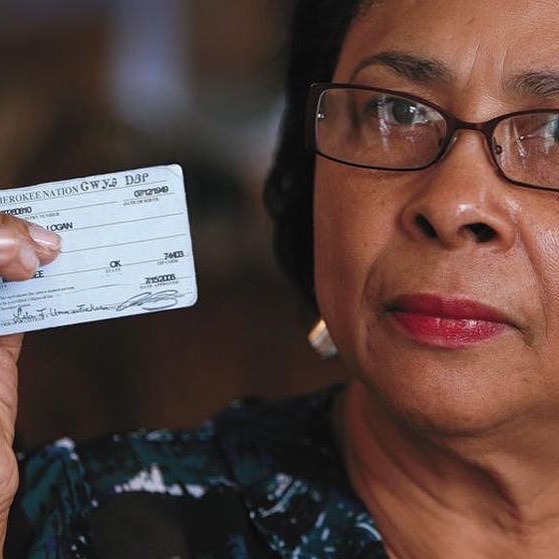
Native American Heritage Month, Day 6: Cherokee Freedman During the 1700s and until the Civil War ended, the tribes collectively referred to as the Five Civilized Tribes (Cherokee, Choctaw, Chickasaw, Seminole, and Creek) had slaves. Of these tribes, the Cherokee owned the most slaves, even forcing them on the Trail of Tears alongside them. Since the Cherokee have a matrilineal kinship system, children born to slave women and Cherokee masters were considered slaves and not granted Cherokee citizenship. Paradoxically and in keeping with notions of white supremacy, however, children born to white women and Cherokee men were considered Cherokee citizens. Similarly, Black-Cherokee interracial marriage was prohibited, while White-Cherokee interracial marriage was permitted, very much like the racist ideals of many tribes today. Post-Civil War, the slaves were freed and granted Cherokee citizenship under the Treaty of 1866, guaranteeing them certain provisions like the right to vote in tribal elections, land allotments, and education. In keeping with the rest of America, the Cherokee often found ways to deny them their rights. These struggles persisted for decades in several legal battles, often surrounding the Cherokee freedmen being denied the right to vote, and culminated in 2006 when they were officially removed from the rolls. In 2017, the U.S. District Court ruled this removal as unlawful and reinstated them as citizens. Reactions to this ruling were mixed, with some arguing that it violated Cherokee sovereignty while others saw it as a restoration of rights unjustly seized. This issue is deeply tied in the concept of “respectability politics,” which refers to the ways in which marginalized groups work to align themselves with Whiteness rather than challenge it. Though the Cherokee had slaves just like the White man, the government still took their land and still made them march to their death, perhaps as a reminder of their second-class status in America. The Cherokee, however, did not see irony nor their commonality with the Black slaves that they oppressed, but remained steadfast in their oppression by denying the former slaves and theirs.
 (0)Dislikes
(0)Dislikes (0)
(0)
Leave a Reply